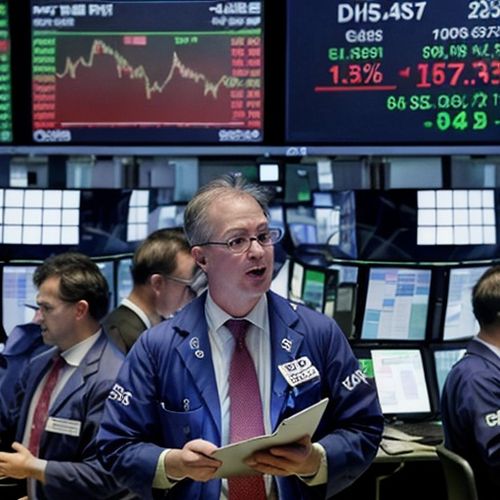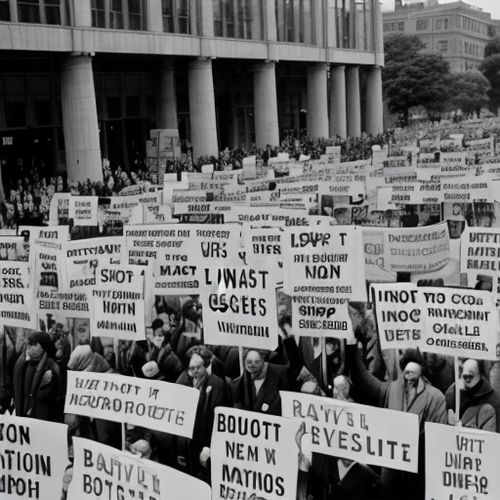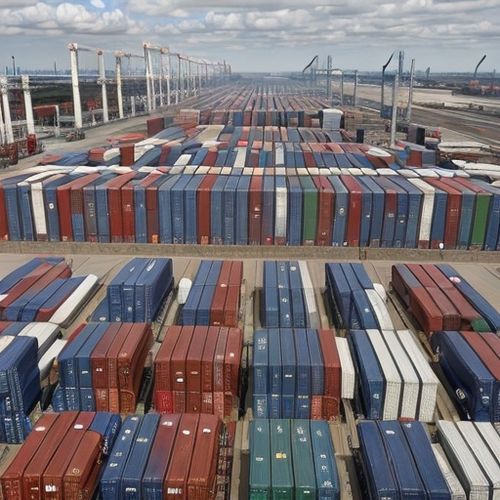In the intricate tapestry of global trade, the actions of one nation can send ripples across the world, affecting not just economies, but also the sentiments and choices of ordinary citizens. The recent trade policies of the United States, spearheaded by former President Donald Trump, have sparked a wave of consumer boycotts that highlight the complex interplay between politics, economics, and national identity.
The Canadian Backlash
Canada, a country with deep historical ties to the United States, has seen a significant shift in consumer behavior in response to American tariffs. The imposition of tariffs on Canadian goods, including a 25% levy on steel and aluminum, has been met with a strong reaction from Canadian consumers. This is exemplified by individuals like Todd Brayman, a veteran of the Canadian Armed Forces, who has made a conscious decision to avoid purchasing American products.
Brayman's story is emblematic of a broader movement. His choice to replace his favorite Californian red wine with a local Nova Scotian alternative, Luckett Phone Box Red, is not just a personal preference but a statement of solidarity. "It's time to stand up and be counted," Brayman asserts, reflecting a growing sentiment among Canadians to support their domestic industries. This movement has been facilitated by innovative apps like Maple Scan, which help consumers identify and substitute American products with Canadian alternatives. The app's success, with 100,000 downloads within a month of its launch, underscores the momentum behind the "Buy Canadian" initiative.
Economic and Emotional Impacts
The economic rationale behind such boycotts is multifaceted. On one hand, supporting local businesses can bolster the domestic economy, creating jobs and fostering local growth. The CEO of Canadian grocer Loblaw reported a significant increase in the sales of Canadian products, with weekly sales rising by double digits. This trend is not limited to groceries; other sectors, such as manufacturing and services, are also benefiting from the surge in nationalistic consumerism.
However, the emotional and symbolic aspects of these boycotts cannot be overlooked. For many Canadians, the decision to avoid American products is rooted in a sense of betrayal and disappointment. The historical bonds between the two nations, forged through shared values and mutual cooperation, have been strained by recent trade policies. Brayman's lament, "It is just profoundly upsetting and disappointing to see where we are," captures the emotional toll of these tensions.
The European Echo
The boycott movement is not confined to Canada. In Europe, similar sentiments are driving consumers to shun American products. Denmark, in particular, has seen a strong reaction to Trump's controversial statements about acquiring Greenland. The Salling Group, Denmark's largest grocery store operator, introduced a black star symbol to highlight European brands, encouraging consumers to make informed choices.
Bo Albertus, a Danish school principal, exemplifies this trend. His decision to cancel subscriptions to American streaming services like Netflix and Disney Plus, despite the inconvenience to his family, is a testament to the power of consumer activism. "I can't do anything about the American political system, but I can vote with my credit card," he says. This sentiment is echoed by thousands of members in a Danish Facebook group dedicated to boycotting American goods, where local alternatives are shared and promoted.
Challenges and Limitations
While the boycott movement has gained significant traction, it is not without its challenges. For some products, finding viable alternatives is easier said than done. Mette Heerulff Christiansen, a Danish shopkeeper, highlights the difficulty of replacing certain American products, particularly in the technology sector. "Coca-Cola is easy to substitute with Jolly Cola, a Danish brand, but technology, like Facebook, that's totally difficult to avoid," she notes.
Moreover, the economic impact of these boycotts may be limited in the long run. According to Douglas Irwin, a professor of economics at Dartmouth College, past boycotts have often been short-lived and have had minimal long-term effects on trade. "It starts as a hostile reaction to some US action but tends to fade with time," he explains. However, the immediate impact on American businesses cannot be ignored. Companies like Caledonia Spirits, a distiller based in Vermont, have experienced direct consequences, with orders being canceled in response to tariffs.
A Call for Dialogue and Understanding
The boycott movement, while driven by frustration and a desire for change, also underscores the need for dialogue and understanding. Ryan Christiansen, president of Caledonia Spirits, expresses a hope for a more "friendly" approach to resolving trade issues. His sentiment reflects a broader desire among businesses and consumers alike for a return to cooperation and mutual respect.
The rise of boycott movements in response to American trade policies highlights the deep-seated impact of political decisions on everyday lives. While the economic and emotional motivations behind these boycotts are clear, the long-term effectiveness remains uncertain. What is certain, however, is the importance of fostering dialogue and understanding in an increasingly interconnected world. As nations navigate the complexities of global trade, the voices of consumers, businesses, and policymakers must come together to build a future that values cooperation over confrontation.

By Samuel Cooper/Apr 10, 2025

By Noah Bell/Apr 10, 2025

By Sarah Davis/Apr 10, 2025

By Noah Bell/Apr 10, 2025

By Rebecca Stewart/Apr 10, 2025

By Lily Simpson/Apr 10, 2025

By Christopher Harris/Apr 10, 2025

By Emma Thompson/Apr 10, 2025

By Olivia Reed/Apr 10, 2025

By Eric Ward/Apr 10, 2025

By Victoria Gonzalez/Apr 10, 2025

By Jessica Lee/Apr 10, 2025

By Sophia Lewis/Apr 10, 2025

By Eric Ward/Apr 10, 2025

By William Miller/Apr 10, 2025

By James Moore/Apr 10, 2025